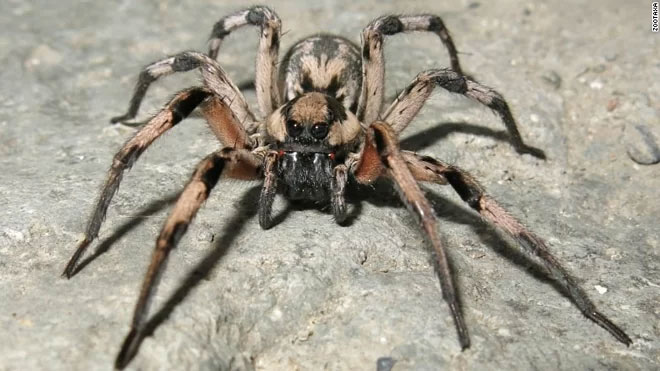Three species of insects contribute greatly to medicine
Spider venom has the ability to treat epilepsy and intestinal tract, and the wasp sting venom can inhibit cancer cell proliferation.
According to scientists, insects still interact with our lives every day. For example, butterflies can taste with their feet, spiders hear through small hairs on their legs, and the worm can cut itself into a new tail when cut in half.
Researchers learned about these species and identified three species that contribute significantly to human medicine.
Spider venom can treat epilepsy, intestinal problems
Irritable bowel syndrome (IBS) includes symptoms such as diarrhea, constipation, abdominal pain, which can affect the quality of human life. About 11% of the world's population is living with IBS. In 2016, researchers from the University of Adelaide (Australia), John Hopkins (USA) and other organizations, discovered spider venom capable of treating IBS-related pain.

Spider venom works to treat intestinal diseases and epilepsy.
Tarantula spiders, Heteroscodra maculation, carrying toxins can stimulate proteins in human intestines. This discovery by scientists has opened new treatments for humans. In 2018, members of the research team found a way to block the pain caused by IBS when tested on mice. Spider venom also has the ability to selectively activate receptors in Dravet syndrome mice, a dangerous form of epilepsy.
Professor Steven Petrou, author of the study, said that spiders kill prey through compounds from venom aimed at nerves. This finding may set the stage for the study of a new method of treating epilepsy.
Professor Jessica Garb, University of Massachusetts Lowell, has spent many years studying spider silk. She said spider silk could become a tough material to cover medical devices, make prosthetic limbs, bandages and stitches, maybe even sports equipment.
Cockroaches support treatment of digestive problems
According to research from the University of Nottingham (UK), cockroaches and locusts contain many molecules that can kill bacteria. The researchers tested on American cockroaches and two other grasshopper species. Simon Lee, one of the researchers, said: " We hope to develop these molecules into treatments for Escherichia coli and MRSA - an antibiotic-resistant bacteria."
This new method can replace existing drugs without serious side effects.

Cockroaches can produce milk themselves, a source of inspiration for researchers to make artificial milk.
In addition, cockroaches are also a rich source of protein , capable of producing a form of self-sustaining milk when young. Professor Subramanian Ramaswamy, co-author of the study, said the milk helps form protein crystals in human gut. Not only that, researchers are looking to produce artificial milk from cockroach milk.
Horned bee venom is antibacterial
Horned wasps can cause poisoning, life-threatening if severe. However, studies have shown that peptide compounds - a type of amino acid in the form of short chains that form a protein system, in the corn beetle can be applied in biomedical.

Hornets contain peptide compounds - a type of amino acid in the form of short chains that function to build protein systems.
A mastoparan type called Polybia paulista in the isp , is capable of inhibiting the proliferation of bladder and prostate cancer cells.
- Insect-eating insects like to eat
- More than 1 million species of insects on Earth but this is the reason they are
- Set of brilliant photos showing off
- 14 recorders in the insect world
- Watching insects 'monster monsters'
- Top 10 weird insects
- How many species of flowering plants?
- Important role of wild insects with agriculture
- The discovery of insects sheds light on climate change
- Discovered 3 new species of cockroaches
- Light pollution reduces the number of insects
- The 'terrifyingly scary' behavior of insects
 Why do potatoes have eyes?
Why do potatoes have eyes? 'Tragedy' the world's largest carnivorous life: Death becomes ... public toilet
'Tragedy' the world's largest carnivorous life: Death becomes ... public toilet Tomatoes were once considered 'poisonous' for 200 years
Tomatoes were once considered 'poisonous' for 200 years Detecting microscopic parasites on human face
Detecting microscopic parasites on human face